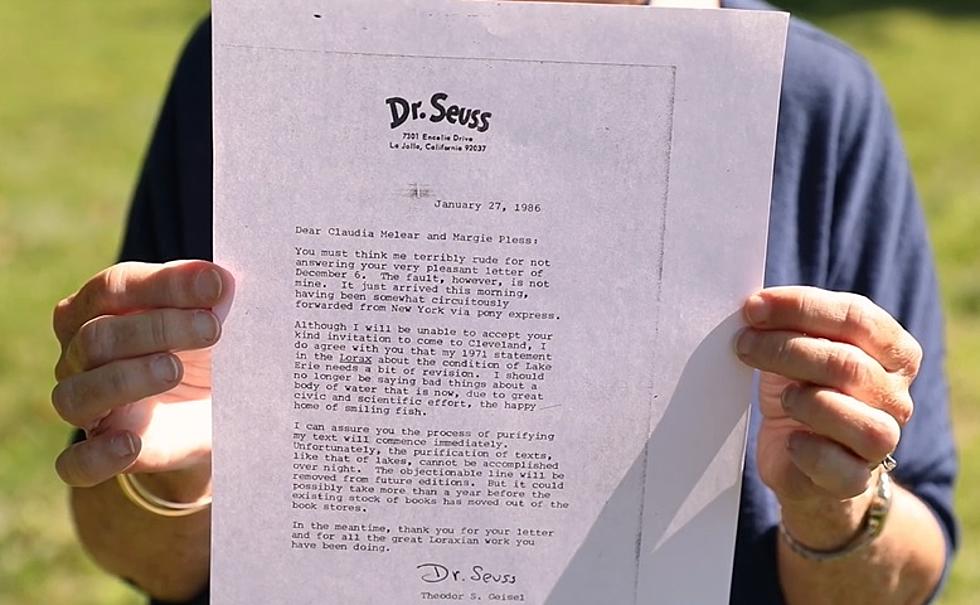
Two Ohio Students Changed Dr. Seuss’ Opinion of Lake Erie
We Michiganders know that once upon a time Lake Erie had a bad reputation. In all honesty, it still kind of does. Lake Erie is known for being heavily polluted by the industrial factories in Cleveland and along the Cuyahoga River. At one point it was so bad that the river actually caught on fire!
The waters were filled with fertilizer runoff and pesticides from nearby farms, waste water from city sewers, and pollutants from the nearby factories. As Cleveland Historical writes,

As a result of these pollutants, Lake Erie contained increased levels of phosphorus and nitrogen...Dead fish littered the shoreline as a lack of oxygen in the water led to massive fish kills...this led to the coining of the phrase - more sensational than factual - "Lake Erie is dead," which started to appear in national publications in the late 1960s.
Everybody knew Lake Erie was filthy, including Theodor Geisel a.k.a. Dr. Seuss! When Dr. Seuss published his cautionary tale The Lorax in 1971, he took a shot at Lake Erie when speaking of a group of humming fish that were leaving their pond,
...in search of some water that isn’t so smeary. I hear things are just as bad up in Lake Erie.
However, by the mid-80s conditions had improved in the lake. So much so that two students at Ohio's Sea Grant Education Program took umbrage with the line and took it upon themselves to make a difference. Graduate students Claudia Melear and Margie Pless wrote Dr. Seuss a letter talking about all the positive changes in Lake Erie and would he please consider changing the line since it was no longer accurate? To the students surprise-- he responded! Dr. Seuss wrote,
I do agree with you that my 1971 statement in The Lorax about the condition of Lake Erie needs a bit of revision. I should no longer be saying bad things about a body of water that is now, due to great civic and scientific effort, the happy home of smiling fish.
Though you can still find the original line in earlier editions, Dr. Seuss assured the students the objectionable line would be removed from all future editions of the book. Currently the line simply reads, "They'll walk on their fins and get woefully weary in search of some water that isn't so smeary."
If it hadn't been for these two Ohio students, negative connotations of Lake Erie would still be passed on to future generations! Though we still have a long ways to go, I'm so glad these two women took it upon themselves to be the change they wanted to see in the world.
Ohio Home For Sale Has Tree Growing Inside
More From WKFR









